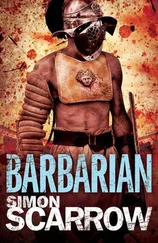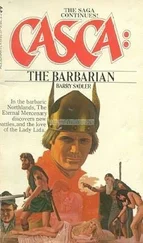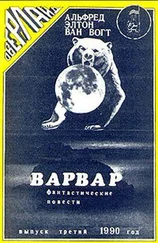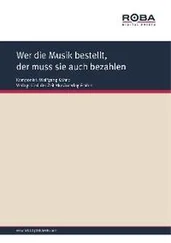A Chinese prostitute is less obviously sensual than a European mother of a family. She immediately shows affection. She seeks to attach herself.
Chinese painting is cleanliness, absence of impressionism, of excitement. There is no air between the objects, nothing but pure ether. The objects are traced; they seem to be memories. It is they, and yet they are absent, like delicate phantoms that desire has not raised. The Chinaman likes distant horizons above everything… things that cannot be touched.
The European wants to be able to touch. The air in his pictures is thick. His nudes are almost lewd, even when the subject is taken from the Bible. Passion, desire, hands maul them.
The Chinaman has a genius for the sign. Beside Chinese writing, Egyptian writing is bestial, it is particularly stupid. The most ancient Chinese writing, that to be found on seals, was already free from voluptuousness in its presentation and tracing, almost so in its symbols; the writing that succeeded it lost its circles, curves and all envelopments. Freed from imitation, it became quite cerebral, thin and ‘un-enveloping’ (to envelop: voluptuousness).
And only the Chinese theater is a theater for the mind.
Only the Chinese know what a theatrical production is. The Europeans have, for a long time, produced nothing at all. The Europeans show you everything. Everything is there, on the stage. Every object, nothing is missing, not even the view from the window.
The Chinese, on the contrary, who is a simple creature, and marvelously clever, brings out whatever is needed to indicate a landscape, or trees, or a ladder, according to what is required. As the scene changes every three minutes, there would be no end to the installing of furniture, of objects, etc. His theater is extremely rapid, like a cinema.
He can show a great many more objects and outdoor scenes than we can.
The music indicates the type of action or of sentiment, and even a European is finally able to follow.
Each actor comes on the scene with a costume and a face painted in such a way that it tells you at once who he is. Impossible to cheat. He can say anything he likes. We know what we know.
His character is painted on his face. Red if he is brave, white with a black stripe if he is a traitor, and we know exactly to what degree; if he has only a bit of white on his nose, he is a figure of fun, etc.
If he needs great space, he simply looks off into the distance; and who would look off into the distance if there were no horizon? When a woman has to sew a dress, she at once begins to sew. Only the pure air shifts between her fingers, nevertheless everyone feels the sensation of sewing, of the needle (for who would sew pure air?) going in, and coming out with difficulty on the other side; and one’s impression is even stronger than in reality; one feels the cold and everything. Why? Because the actor pictures the thing to himself. A sort of magnetism makes its appearance with him, coming from his desire to feel what is absent.
When you see him pour, with the greatest care, from a non-existent jug, non-existent water onto a non-existent cloth and rub his face with it, and wring out the non-existent cloth just as it should be done, the existence of this water, unapparent and yet evident, becomes somehow hallucinating, and if the actor lets the jug fall (non-existent) and you are in the front row, you feel you have been splashed like he has.
There are plays where the action is terrific, where non-existent walls are scaled, with the aid of non-existent ladders, in order to steal non-existent money chests.
There are often, in comic plays, twenty minutes or more of almost uninterrupted miming.
The miming language of lovers is something exquisite; it is better than words, more tangible, more imperious, more spontaneous, and central; it is fresher than love, less exaggerated than dancing, less domestic; and what is really remarkable, one can represent everything without its being shocking.
I saw, for example, a prince who was traveling incognito ask a servant-girl at the inn, by gestures, if he could sleep with her.
She replied, in the same manner, by a lot of impossibilities.
Sleeping proposals always seem difficult to separate from a certain sensuality. Well, it is curious, but there was none. Not a sign of it, and it lasted for at least a quarter of an hour. It became an obsession with this little young man. The whole house was amused. But never did that obsession become embarrassing. She was not in flesh , but had got as far as being outlined like certain faces seen in a dream, free from any vulgarity.

Chinese style, particularly the very ancient style of the Mings, of the Six dynasties, of the Tangs, is extraordinary. No lyrical development, no unilinear progression.
Suddenly you are stopped, you can go no further. Old Chinese stories always seem disconnected. They have stumps. They are chopped off. Compared to them one of our stories looks as if it were full of tricks; and in fact the richest grammar, the most mobile phrase, is nothing but sleight-of-hand with the elements of thought.
The thought, the phrase of the Chinese is right before you. And it stands solidly, like a chest, and if the phrases flow and are linked, it is the translator who has made them flow.
A grandeur like that from a pot of stew emanates from it.
Lao-Tsu, Chuang-Tsu in their philosophy, Kao-Ti (the peasant who became emperor) in his proclamations to the Chinese, Wu-Ti in his letter to the captain of the Huns, have this extraordinary style. A style that economizes words.

Nothing approaches the style of Lao-Tsu. Lao-Tsu throws you a big pebble. Then he goes away. After that he throws you another pebble, then goes away again; all his pebbles, though very hard, are fruit, but naturally the old bear is not going to peel them for you.

Lao-Tsu is a man who knows. He touches bottom. He speaks the language of evidence. He says nothing that is not clear, certain. Nevertheless, he is not understood. ‘The Tao that is expressed in words is not the true Tao . How small! How great! How unfathomable!… — What does the water of rivers do to reign over the torrents of the high mountains and the streams?
‘—It knows how to keep to a lower level.
‘Work by inaction.
‘With inaction everything is possible…
‘Annihilate one’s being and one’s action, and the universe comes to you.’
His Taoist disciples cultivated all this for magic, rather than for moral purposes.
A man thus effaced is no longer struck by substances, nor by phenomena.
A hunter, to frighten the game, set the forest on fire. Suddenly he saw a man who was coming out of a rock. This man then went through the fire deliberately.
The hunter ran after him.
— Heigh, tell me. How do you manage to pass through the rock?
— The rock? What do you mean by that?
— And you have been seen to pass through the fire as well.
— The fire? What do you mean by the fire?
This Taoist, perfect, completely effaced, no longer noticed any difference in anything.
At other times he lived among lions, and the lions did not realize that he was a man. They noticed nothing strange about him.
Such is the pliability that the understanding of Tao gives one. Such is the supreme effacement of which so many Chinese have dreamed.

The Chinaman is not particularly dashing. A Chinese city is conspicuous for its formidable gates. What one needs first of all is to be protected. Rather than too many proud monuments in the interior, imposing gates, strongly built, for the purpose of frightening people away, but for us, so obviously a bluff.
Читать дальше














